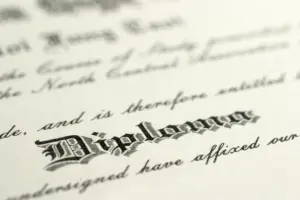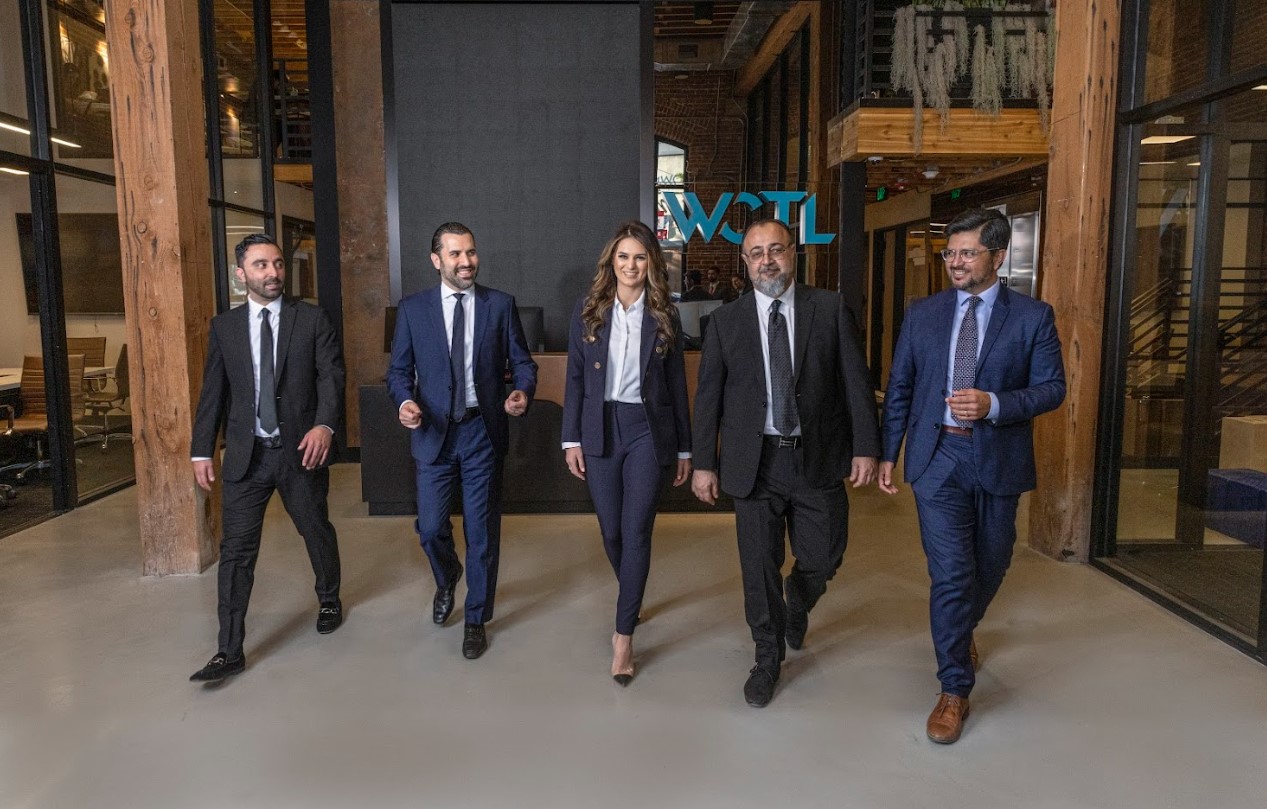Did you know that if you use the terms lawyer and attorney synonymously you’re technically incorrect? In the legal industry, you may sometimes see these titles used interchangeably but there are some clear distinctions in their roles and responsibilities. The clearest distinction between both is attorneys can practice law and take on clients, while lawyers can’t. Lawyers might not have passed the bar exam yet.
In this article, we’ll unravel the nuances between attorneys and lawyers, examine their respective responsibilities, and make clear the qualifications required for each position.
What is Considered an “Attorney”?

An attorney is a legal professional who has:
- Completed law school
- Passed the bar exam
- Been admitted to practice law in a particular state or federal jurisdiction.
Attorneys are often referred to as “attorneys-at-law” and are licensed to:
- Provide legal advice
- Represent clients in court
- Draft legal documents
- Negotiate settlements and agreements on behalf of clients
They have the knowledge and expertise needed to represent clients in various legal matters, from civil litigation to criminal defense. Attorneys may choose to work independently as sole practitioners or become part of a legal team within a law firm or legal office.
Comparing Attorney vs Lawyer – Quick Reference Chart
| Category | Lawyer | Attorney |
|---|---|---|
| Education | Juris Doctor (J.D.) | Juris Doctor (J.D.) |
| Bar Exam | Not passed | Passed |
| License to Practice Law | No | Yes |
| Can Represent Clients in Court | No | Yes |
| Can Provide Legal Advice | No (not formally) | Yes |
| Regulated by State Bar | No | Yes |
| Subject to Legal Ethics Rules | No | Yes (e.g., MRPC) |
| Common Roles | Consultant, Academic, Researcher | Trial Lawyer, Legal Advisor, In-house Counsel |
| Attorney-Client Privilege | No (in most cases) | Yes |
| Geographic Practice Limit | N/A | Limited to jurisdictions where licensed |
What is a “Lawyer” in California Law?
A lawyer is a broader term encompassing anyone who has graduated from law school with a Juris Doctor (J.D.) degree. While all attorneys are lawyers, not all lawyers are attorneys. Some lawyers may work as:
- Consultants
- Researchers
- Academics/Teachers
Lawyers can provide these services without ever passing the bar exam and getting a license to practice law or represent clients in court. In order to actively represent clients in court and give clients legal advice lawyers must be licensed by the state bar to become an attorney. If they do give unwarranted legal advice they may be subject to criminal charges. Lawyers can even go on to get a Doctor of Juridical Science (SJD) degree which is considered the highest level of a law degree possible.
Lawyer vs Attorney Educational Requirements and Licensing
Law School and Juris Doctor (J.D.) Degree
Both attorneys and lawyers must complete a law school program, typically lasting three years, to earn a Juris Doctor (J.D.) degree. Law school encompasses an extensive array of topics, such as
- Constitutional legislation
- Contractual agreements
- Torts
- Property regulations
- Civil processes
- Legal composition
Additionally, students learn about specialized legal fields, including family legislation, intellectual property rights, and taxation laws.
Bar Exam and Licensing
After completing their J.D. degree, aspiring attorneys must now pass the bar exam in the jurisdiction where they intend to practice law. For example, if a lawyer wants to practice law in California, they will need to take the exam for that specific jurisdiction. Therefore an attorney practicing law in California cannot actively represent a client in New York courts. The lawyer would have to take a separate bar exam in New York in order to do so.
The bar exam is an intense, several-day-long assessment that evaluates an attorney’s understanding of both federal and state regulations. Once a candidate passes the bar exam, they must undergo a character evaluation or a background check, to be admitted to the bar and become a licensed attorney. These requirements vary by jurisdiction but are generally put in place to make sure the practicing attorneys have a general sense of ethical and professional conduct.
What is the Attorney-Client Privilege?
Attorneys are bound by strict ethical rules and professional conduct guidelines found in the Model Rules of Professional Conduct. The MRPC is enforced by state bar associations and other regulatory bodies.
These rules cover various aspects of an attorney’s practice, such as:
- Attorney client privilege
- Conflicts of interest
- Competence
- Diligence
- Attorney fees / Solicitation
- And More
Lawyers who are not licensed to practice law are not subject to the same regulatory oversight as attorneys. They are expected to maintain a high degree of professionalism in their work but attorney-client privileges do not exist for lawyer and client relations.
Attorney-Client privilege refers to the legal privilege that keeps confidential communications between an attorney and their client private. Unusable as evidence in court proceedings. There are some exceptions to communications that are not covered by attorney-client privileges, such as:
- Communications with purposes of furthering a crime
- A corporation against its shareholders
- If the communications involve the well-being of a child
Is an Attorney More Powerful Than a Lawyer?
While the terms attorney and lawyer are often used interchangeably, an attorney is not necessarily more powerful than an lawyer. However, there are subtle differences that affect their roles rather than their level of “power.”
As previously mentioned, a lawyer is anyone who has completed law school and holds a law degree, but are not licensed to practice law in court. In this sense, an attorney has more legal authority to act on behalf of clients in official court proceedings. This makes attorneys more active in the legal system, but not necessarily more powerful in a general sense.
The distinction lies in practice rights, not superiority. Additionally, the effectiveness of a lawyer or attorney is dependent on their knowledge, experience, and expertise, not their title.
The Cost Difference Between a Lawyer and an Attorney
In most cases, there’s no significant cost difference between a lawyer and an attorney, because the distinction is rarely reflected in billing. However, the fees depend more on factors such as
- Experience and specialization
- The complexity of a case
- Whether they charge hourly, flat fee, or contingency
Since attorneys are licensed to represent clients in court, they may be hired for litigation or trial matters, which can involve higher legal costs due to the time-intensive nature of such cases. However, both attorneys and non-practicing lawyers can charge premium rates depending on their expertise, such as in legal consulting, contracts, or intellectual property. With that in mind, it is important to consult with different lawyers and attorneys to get a better understanding how much they cost for your case.
Do I Need a Lawyer or Attorney?
The choice between a lawyer and an attorney depends on your legal needs:
- If you’re seeking legal counsel, general legal advice, help with contracts, estate planning, or compliance, a lawyer may be sufficient, even if they don’t appear in court.
- If you’re dealing with lawsuits, criminal charges, or courtroom representation, you will need a licensed attorney.
Most professionals who offer legal services to the public are attorneys by licensure, even if they’re referred to as “lawyers.” So in practice, hiring a “lawyer” typically means you’re hiring an attorney but it’s always a good idea to confirm their bar status if courtroom representation is required or even a possibility.
Choosing the Right Legal Professional For Your Case
When seeking legal representation or advice, it is essential to choose the right legal professional for your specific needs. Consider the following factors when making your decision:
- Licensing and Experience: Make sure that the legal professional you select is licensed to practice law in your jurisdiction and has relevant experience in the area of law pertaining to your case.
- Communication and Rapport: Establish a strong working relationship with your legal professional by assessing their communication style; making sure you feel comfortable discussing your legal matters with them.
- Availability and Responsiveness: Verify that the legal professional you choose has the time and resources to dedicate to your case and can respond quickly to your needs.
- Reputation and Track Record: Find potential legal professionals online by looking at testimonials, reviews, and any notable achievements or accomplishments by their firm.
- Fees and Costs: Gather a clear understanding of the legal professional’s fee structure and possible expenses related to your case. Do they work on contingency fees? Or are they hourly?
WCTL Will Address Your Questions Regarding Your Case
Understanding the differences between attorneys and lawyers is needed when seeking legal representation or advice. While both are legal professionals with a Juris Doctor (J.D.) degree, attorneys are specifically licensed to practice law and represent clients in court. At West Coast Trial Lawyers our expert attorneys and lawyers are here to assist you with your personal injury or employment case every step of the way. With over 20 years of legal experience, our firm has successfully represented thousands of clients all over California. The founder, president, and Harvard graduate Neama Rahmani has built a top-rated law firm that continues to provide world-class legal representation for those in need.
Our team is dedicated to protecting your rights and answering any questions regarding your case. Schedule a free consultation with one of our lawyers or attorneys by calling (213) 927-3700 or by filling our contact form.
Frequently Asked Questions (FAQs)
What Is the Main Difference Between an Attorney and a Lawyer? The primary difference between an attorney and a lawyer is that an attorney is licensed to practice law and represent clients in court, while a lawyer has completed law school but may not be licensed to practice law. All attorneys are lawyers, but not all lawyers are attorneys. What Educational Requirements Must Attorneys and Lawyers Fulfill? Both attorneys and lawyers must complete a three-year law school program to earn a Juris Doctor (J.D.) degree. Attorneys must also pass the bar exam and satisfy additional requirements to be licensed to practice law in a specific jurisdiction. What Are the Typical Roles and Responsibilities of Attorneys? Attorneys are responsible for providing legal advice, drafting legal documents, negotiating settlements and agreements, representing clients in court proceedings, and conducting legal research and analysis. Can a Lawyer Represent Me in Court? Only licensed attorneys can represent clients in court. Lawyers who have not received a license to practice law cannot represent clients in legal proceedings.
Check one of our most visited pages: Los Angeles Car Accident Lawyer.




















































































